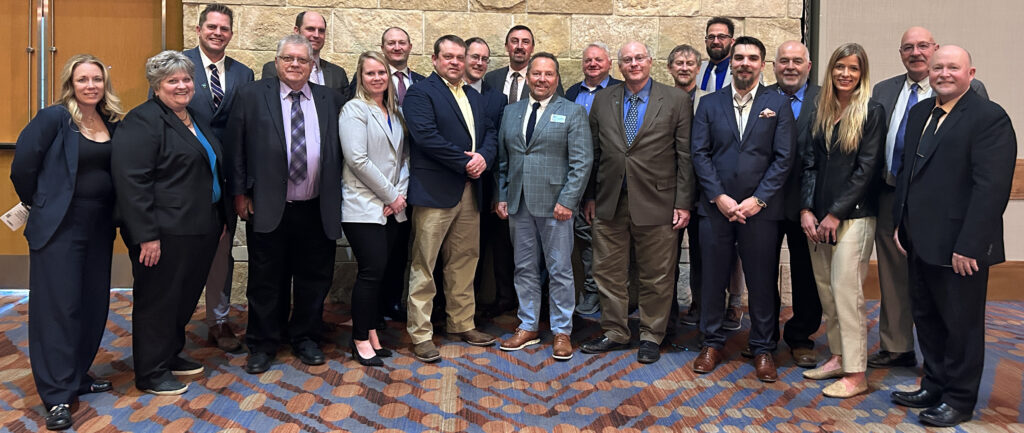For the first time since 1979, the makeup of the 134 seats in the Minnesota House of Representatives appears to be evenly divided. The ramifications of a tied Minnesota House of Representative are far reaching for the legislature, as Democrats no longer hold a legislative “trifecta.” Now, both parties will likely have to work together to secure enough votes to elect House leaders and committee chairs – along with passing a two-year budget.
Following the Nov. 5 election, both the DFL, which previously held a six-seat majority, and Republicans each held 67 seats after the GOP flipped three DFL seats. Two Democrats, Rep. Dan Wolgamott and Rep. Brad Tabke, clung to tiny leads pending recounts. Election results are scheduled to be certified by the state canvassing board on Nov. 21.
“It’s interesting times in Minnesota, like usual,” Darin Johnson, president of the Minnesota Soybean Growers Association (MSGA), said with a chuckle. “Honestly, as we sit here two days after the election, we don’t know quite know what it’s going to look like moving forward, but that will start to become clearer in the weeks ahead.”
After Donald Trump’s victory in the presidential race over Kamala Harris, Democratic vice-presidential candidate and Minnesota Gov. Tim Walz returns to St. Paul facing a different political environment than when the 2024 legislative session adjourned.
Following the election, Minnesota House leaders signaled a willingness to collaborate and, at least temporarily, cast aside bruised feelings from the 2024 legislative session.
“We would prefer to have the majority, and I know the Republicans would prefer to have the majority, but this is a golden opportunity to show people that we can get along and we can get things done,” House Speaker Melissa Hortman (DFL-Brooklyn Park) said during a post-election news conference.
House Minority Leader Lisa Demuth (R-Cold Spring) agreed.
“This is a perfect opportunity for us to work together with our Democrat colleagues and bring civility back where there has been a lack of that,” Demuth said.
A tie in the House means advocacy groups like MSGA will have windows of opportunities to play both defense and offense. The day after the election, MSGA officers visited with Executive Director Joe Smentek and MSGA’s lobbying team for a lay of the land and hashed out a preliminary strategy.
“For us, we’re still focused on the same issues – protecting biodiesel, tax relief, making sure the crop production tools that we’ve had in the past are still available,” Johnson said. “We want to keep the doors open on the farm and make sure the profitability is there.”
Democrats maintain a 34-33 advantage in the Senate after winning a special election in District 45. The 2025 legislative session starts Jan. 14 at noon and must wrap up by May 19 to pass a biannual budget and prevent a government shutdown. In the meantime, both parties’ caucuses will meet in the coming days to elect party leaders. MSGA Vice President Ryan Mackenthun said a new legislative class means educating incoming lawmakers on the importance of the soybean industry’s economic impact on Minnesota.
“The nice thing about agriculture is we all eat, we’re all a part of it,” he said. “Now we’ve got to work together to find solutions to help farmers produce goods.”
MSGA will continue to formalize its 2025 policy priorities. On Dec. 17, county delegates from across Minnesota will gather in Mankato for a pre-resolution meeting in advance of its 2025 Annual Meeting on Jan. 23 during MN Ag Expo.





